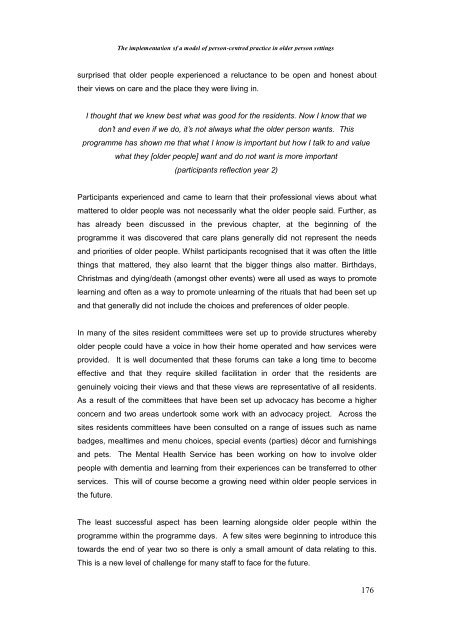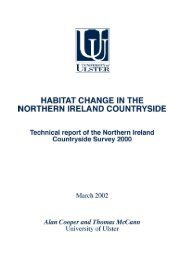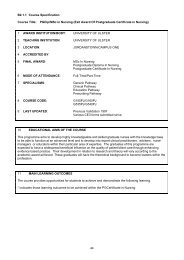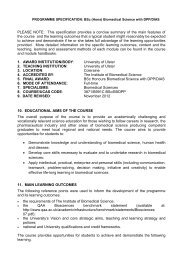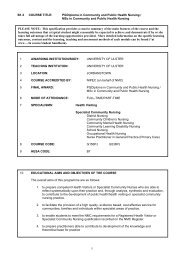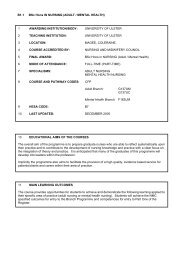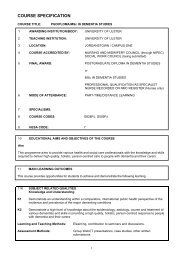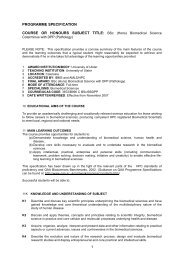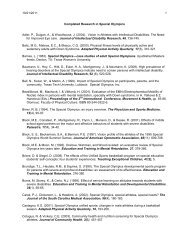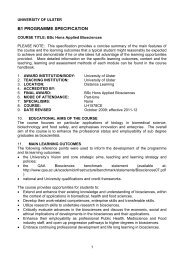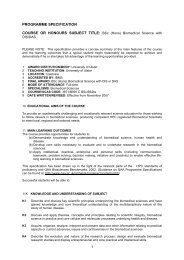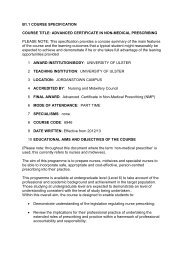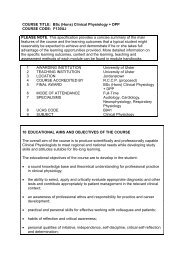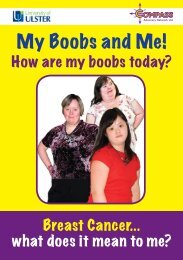The Implementation of a Model of Person-Centred Practice In Older ...
The Implementation of a Model of Person-Centred Practice In Older ...
The Implementation of a Model of Person-Centred Practice In Older ...
You also want an ePaper? Increase the reach of your titles
YUMPU automatically turns print PDFs into web optimized ePapers that Google loves.
<strong>The</strong> implementation <strong>of</strong> a model <strong>of</strong> person-centred practice in older person settings<br />
surprised that older people experienced a reluctance to be open and honest about<br />
their views on care and the place they were living in.<br />
I thought that we knew best what was good for the residents. Now I know that we<br />
don’t and even if we do, it’s not always what the older person wants. This<br />
programme has shown me that what I know is important but how I talk to and value<br />
what they [older people] want and do not want is more important<br />
(participants reflection year 2)<br />
Participants experienced and came to learn that their pr<strong>of</strong>essional views about what<br />
mattered to older people was not necessarily what the older people said. Further, as<br />
has already been discussed in the previous chapter, at the beginning <strong>of</strong> the<br />
programme it was discovered that care plans generally did not represent the needs<br />
and priorities <strong>of</strong> older people. Whilst participants recognised that it was <strong>of</strong>ten the little<br />
things that mattered, they also learnt that the bigger things also matter. Birthdays,<br />
Christmas and dying/death (amongst other events) were all used as ways to promote<br />
learning and <strong>of</strong>ten as a way to promote unlearning <strong>of</strong> the rituals that had been set up<br />
and that generally did not include the choices and preferences <strong>of</strong> older people.<br />
<strong>In</strong> many <strong>of</strong> the sites resident committees were set up to provide structures whereby<br />
older people could have a voice in how their home operated and how services were<br />
provided. It is well documented that these forums can take a long time to become<br />
effective and that they require skilled facilitation in order that the residents are<br />
genuinely voicing their views and that these views are representative <strong>of</strong> all residents.<br />
As a result <strong>of</strong> the committees that have been set up advocacy has become a higher<br />
concern and two areas undertook some work with an advocacy project. Across the<br />
sites residents committees have been consulted on a range <strong>of</strong> issues such as name<br />
badges, mealtimes and menu choices, special events (parties) décor and furnishings<br />
and pets. <strong>The</strong> Mental Health Service has been working on how to involve older<br />
people with dementia and learning from their experiences can be transferred to other<br />
services. This will <strong>of</strong> course become a growing need within older people services in<br />
the future.<br />
<strong>The</strong> least successful aspect has been learning alongside older people within the<br />
programme within the programme days. A few sites were beginning to introduce this<br />
towards the end <strong>of</strong> year two so there is only a small amount <strong>of</strong> data relating to this.<br />
This is a new level <strong>of</strong> challenge for many staff to face for the future.<br />
176


